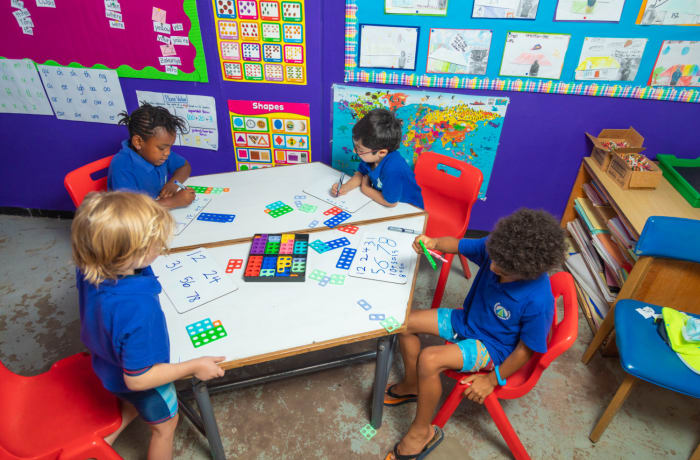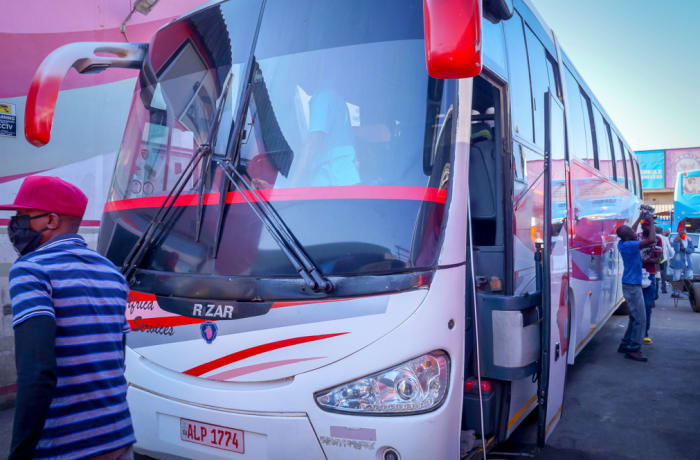
Reception - Tuition Fees
The philosophy of the Pre-School programme is to help children develop their self-awareness and to become confident and independent. Play is an important aspect of Pre-School and we aim to provide an attractive environment that will stimulate learning. Children are given the opportunity to investigate and experiment at their own pace and to foster their own interests. School is seen as an extension of the home and it makes use of the cultural diversity present in the classroom as a basis for recognizing the value of each and every culture represented.
$7,632 per pupil
Select your options
Tuition Plans
Grade
Details
Please include a valid payment reference which is ISL followed by student no. (e.g.ISL00000)
NEW
Buy online
This product is available for online purchase — Buy online now and pick it up instore or get it delivered to you.
| Language | While we teach in English, other languages are always encouraged and home languages are celebrate |
|---|---|
| Mathematics | Children begin to understand mathematics through numbers, counting, comparing, shapes, patterns, measuring quantities, graphing and sorting. The calendar activities conducted during Circle time are an important aspect of the mathematical programme. |
| Units of Inquiry | In keeping within the philosophy of the International Baccalaureate Primary Years Programme (PYP), Social Studies and Science will be taught within Units of Inquiry. These Units will run for approximately 8 weeks and will incorporate as many subjects as appropriate. |
| Physical Education | In addition to the school curriculum, teachers address issues of PSPE as and when appropriate. In a secure and safe environment the children are made aware of their physical capabilities. We aim to develop their skills through swimming, games, dance and gymnastics activities. |
| Music | In music, students explore different families of instruments. They learn different songs and discover how to manipulate music to fit how they feel. |
| Information and Communication Technology | The students consolidate their knowledge of technology and are encouraged to use IT vocabulary, where appropriate, to support their learning. At this level, mouse skills are emphasised. Basic keyboard skills are introduced later on in the year. The children are also given opportunities to use Learn Pads to develop their learning. |
| Library | All students visit the library once a week. During their visit, they select books to bring home and enjoy a story read to them by the librarian. They learn how to take care of books, develop the responsibility for returning books, understand the role of the author and illustrator. They become aware of the location of picture books, the different parts of a book and are introduced to basic citation. Parents are welcome to borrow up to 5 books for 2 weeks. |
| French | In Reception, students focus on Family, stories, materials and digital interactive learning. Children are introduced to basic French language and classroom communication. They are also introduced to numbers 0 to 15 (although we push it to 20) and basic colours. Throughout the year, numbers 0 to 15, basic colours and greetings are reinforced through a variety of songs, activities, games and assessment. |
| Spanish | In Spanish, students learn about Families. They are introduced to basic greetings in Spanish and how to use Spanish vocabulary eg. how to say father, mother, sister and brother. The students are also be introduced to numbers and colours in Spanish. They will also be introduced to numbers 15 to 30. The basic colours, greetings and basic introductions will also be continuously reviewed. |
| Zambian Studies | Our lessons incorporate what is learned in class, using local vernacular. We consolidate and make terms familiar and fun to learn. |
| Homework | Students will begin with reading picture books and by the end of term 2 most children will be reading word books. Children should be reading every evening for about 10 minutes and spend no more than 20 minutes on their homework each evening. |
Enquire about this item
Enquire via Email
Contact supplier
International School of Lusaka
Early learning
Lusaka
The Early Years Department at the International School of Lusaka offers education to children aged two to seven years, with Nursery classes, Pre-school, Reception, Year One and Year Two classes. Classrooms are spacious and well-resourced, and playgrounds are extensive. The campus is located in a clean and safe environment.
Run a business in Zambia?
© 2021 Infobwana, Ltd. All rights reserved. Formally thebestofzambia.com · Learn more








